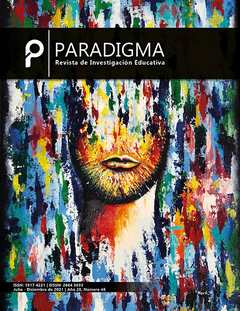Power, Discipline and Prejudice: The Constitution of the Subject
DOI:
https://doi.org/10.5377/paradigma.v28i46.12841Keywords:
power, discipline, prejudice, school hierarchy, authoritarian personalityAbstract
The objective of this trial is to investigate, through literature review, if the power relationship present in the current school hierarchy, between the actor of the school prejudice (teacher) and his victim (student), comes from ancient institutional disciplinary mechanisms of the seventeenth and eighteenth century, which applied power and discipline, in search of a more correct society. Various conceptions of power, discipline and prejudice will be analyzed; and how these interact and influence throughout the life cycle of the subject, channeling the behavior of a future man with an authoritarian personality, dominated by the cultural environment in pursuit of a productive society.
Downloads
667
Downloads
Published
How to Cite
Issue
Section
License
Copyright (c) 2021 Universidad Pedagógica Nacional Francisco Morazán

This work is licensed under a Creative Commons Attribution-NonCommercial-NoDerivatives 4.0 International License.
Transfer of Copyright
- The author, when sending the work, states that it is his will to give the Universidad Pedagógica Nacional Francisco Morazán the patrimonial rights that correspond to him as the author of his work.
- The rights here assigned include all economic rights (Reproduction, transformation, public communication and distribution) and are given without limitation in terms of territory; This Assignment is given for the entire duration term established in the current legislation in Honduras.
- The cession of the aforementioned rights does not imply the cession of moral rights over it, because in accordance with the provisions of the Copyright and Related Rights Law, Chapter II, of the Moral Rights, Article 34, Article 25 , these rights are inalienable, imprescriptible, indefeasible and inalienable.
- The research work or document must be original and have been done without violating or usurping rights of third parties, therefore, the work is exclusively authored and owns the same.
- In the case of any claim or action by a third party, as to copyright on the work in question, the author must assume full responsibility for the rights assigned.
- Upon completion of the Rights Assignment Form, the author states that the work has not been published in another way, that the rights on the work have not been assigned and that no encumbrance or limitation on their use or use is imposed on them.





